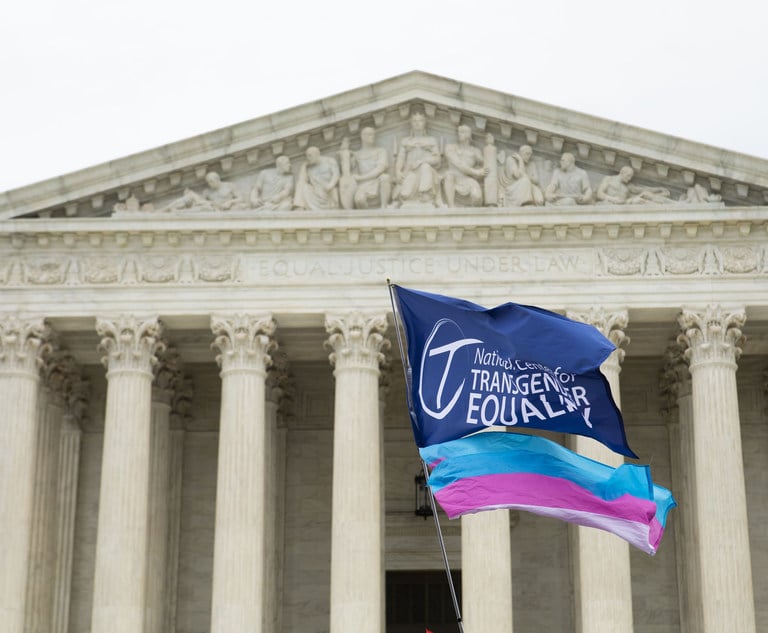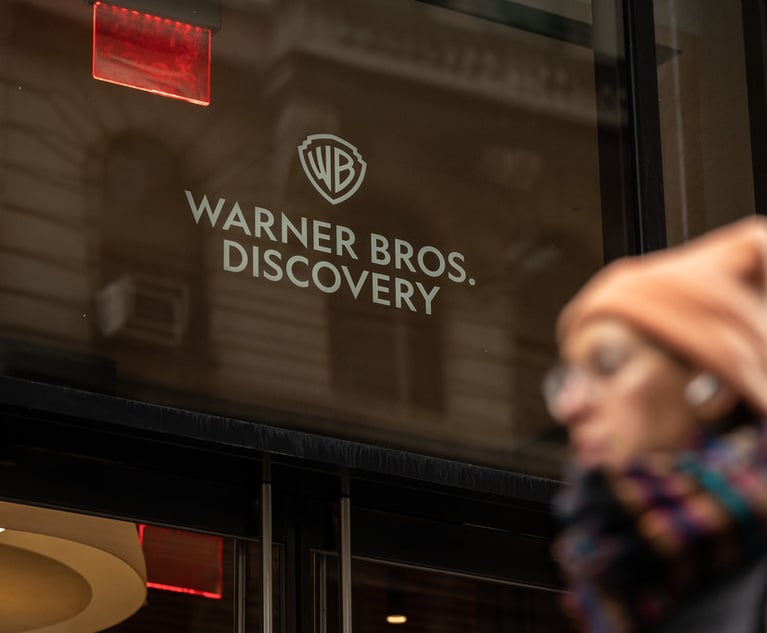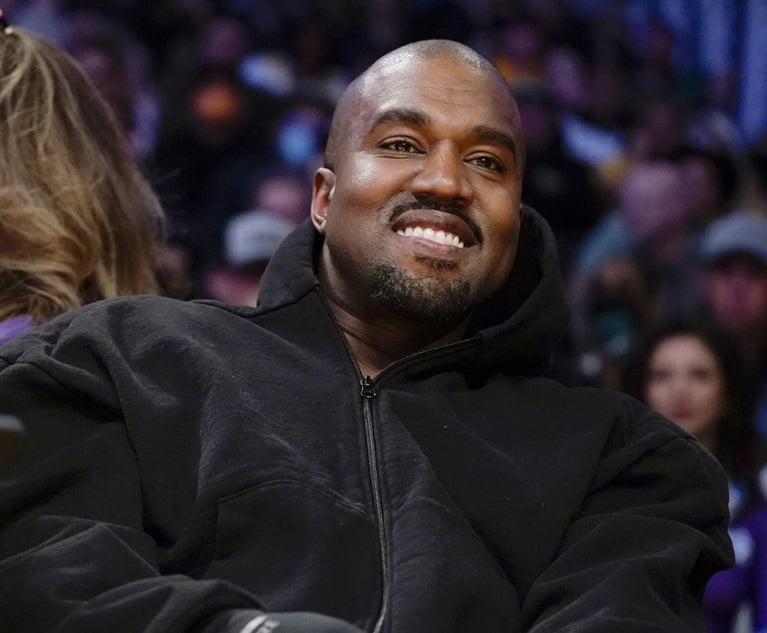 Judge M. Margaret McKeown of the U.S. Court of Appeals for the Ninth Circuit. (Photo: Jason Doiy/ALM)
Judge M. Margaret McKeown of the U.S. Court of Appeals for the Ninth Circuit. (Photo: Jason Doiy/ALM)Led Zeppelin Ruling Topples Kozinski Precedent, and Maybe His Copyright Case, Too
The court ruled en banc that the inverse-ratio rule, in particular, a formulation from former Ninth Circuit Judge Alex Kozinski that made substantial similarity very easy to prove, should be discarded.
March 09, 2020 at 05:52 PM
5 minute read
Led Zeppelin and its music labels were the winner of Monday's copyright decision over the song "Stairway to Heaven." The estate of a songwriter that claims the super group copied his work got the short end. But the estate wasn't the only one.
Among the collateral damage from an en banc ruling from the U.S. Court of Appeals for the Ninth Circuit was a 2002 precedent written by former Chief Judge Alex Kozinski endorsing the so-called inverse-ratio rule. And its a precedent Kozinski has been relying on in his first case back at the court as a private advocate.
M. Margaret McKeown's opinion for a 9-2 en banc court in Skidmore v. Led Zeppelin overruled the court's inverse-ratio rule. She noted that only one other circuit follows the 43-year-old rule while four others have rejected it. The rule says that the more access an alleged infringer has to a copyrighted work, the less proof is needed of substantial similarity by an allegedly infringing work.
In Skidmore, the trustee of the estate of songwriter Randy Wolfe argued that Led Zeppelin and his band Spirit performed at the same music shows in the 1960s and '70s, and that Led Zeppelin guitarist Jimmy Page admitted owning a Spirit album containing the song "Taurus," which the estate says Led Zeppelin copied. The trustee's attorney, Francis Malofiy, argued on appeal that Page's access to the song lowered the standard of proof, and that U.S. District Judge R. Gary Klausner should have instructed the jury on the inverse-ratio rule.
McKeown said in Monday's opinion the absence of the instruction didn't matter, because the Ninth Circuit is doing away with the inverse-ratio rule. Confusion about when and how to apply the rule, criticism from other circuits, and the reality that services such as Google, YouTube and Netflix have made so much artistic work accessible have rendered the inverse-ratio rule unworkable, McKeown wrote.
"Although we are cautious in overruling precedent—as we should be—the constellation of problems and inconsistencies in the application of the inverse ratio rule prompts us to abrogate the rule," McKeown wrote. "Access does not obviate the requirement that the plaintiff must demonstrate that the defendant actually copied the work."
The Recording Industry Association of America and a group of law professors led by Stanford's Mark Lemley were among the amici curiae asking the court to throw out the rule. "Even the strongest evidence of access would not make up for an inadequate degree of similarity," UCLA law professor Eugene Volokh wrote for the RIAA.
Kozinski resigned from the court in December 2017 after a string of female law clerks accused him of harassment. He didn't invent the inverse-ratio rule while at the Ninth Circuit, but his decision in Metcalf v. Bocho was explicitly called out by McKeown as pushing "past the rule's outer limits."
Metcalf involved accusations against Hollywood producer Steven Bochco that he copied the idea for his "City of Angels" television series from two independent writers after they provided him a similar screenplay. Kozinski wrote that because Bochco had access to the screenplay, for purposes of summary judgment, the court could "easily infer that the many similarities between plaintiffs' scripts and defendants' works were the result of copying, not mere coincidence."
Kozinski himself has been invoking Metcalf and the inverse-ratio rule in his return to the court as an advocate last fall. Kozinski argues that U.S. District Judge Percy Anderson "sidestepped" the inverse-ratio rule in ruling on the pleadings that move "The Shape of Water" was not similar to his client's play, "Let Me Hear You Whisper."
"This Court's 'inverse-ratio' rule required the district court to exercise special caution in deciding substantial similarity on a 12(b)(6) motion," Kozinski wrote in briefs to the court.
McKeown said in Monday's opinion that Metcalf in particular has led to confusion about the inverse-ratio rule. Her opinion was joined in full by Chief Judge Sidney Thomas and Judges William Fletcher, Johnnie Rawlinson, Mary Murguia and Jacqueline Nguyen. Judges Paul Watford, Andrew Hurwitz and Bridget Bade joined all of the opinion except for portions having to do with instructions on the selection and arrangement of unprotected musical elements.
Judges Sandra Ikuta and Carlos Bea dissented, on the ground that Klausner should have instructed on selection and arrangement. "Without plaintiff's requested instruction, the jury was deprived of the opportunity to consider the plaintiff's central theory of the case," Ikuta wrote.
Monday's ruling also held that for works copyrighted before 1972, copyright is defined only by sheet music. It wasn't until that year that sound recordings became copyrightable, and not until 1978 that composers could submit sound recordings to the Copyright Office as evidence of the composition.
Plaintiffs lawyer Malofiy had tried repeatedly to play "Taurus" for the jury, arguing it was the best evidence of the song Wolfe had composed. Klausner had refused.
Malofiy has argued that restricting protection to the deposit copy disadvantages the many musicians who do not read music. But, McKeown wrote, that apparently wasn't an issue for Wolfe because "Taurus" had been transcribed for deposit at the Copyright Office. "Digital transcription and other technological advances undercut this argument, not to mention that for decades now, sound recordings have been accepted as the deposit copy," McKeown added.
Davis Wright Tremaine partner Peter Anderson had the winning argument for Led Zeppelin, Warner/Chappell Music and other labels.
This content has been archived. It is available through our partners, LexisNexis® and Bloomberg Law.
To view this content, please continue to their sites.
Not a Lexis Subscriber?
Subscribe Now
Not a Bloomberg Law Subscriber?
Subscribe Now
NOT FOR REPRINT
© 2024 ALM Global, LLC, All Rights Reserved. Request academic re-use from www.copyright.com. All other uses, submit a request to [email protected]. For more information visit Asset & Logo Licensing.
You Might Like
View All
Court rejects request to sideline San Jose State volleyball player on grounds she’s transgender
4 minute read


Federal Judge Rejects Teams' Challenge to NASCAR's 'Anticompetitive Terms' in Agreement
Trending Stories
- 1Judge Denies Sean Combs Third Bail Bid, Citing Community Safety
- 2Republican FTC Commissioner: 'The Time for Rulemaking by the Biden-Harris FTC Is Over'
- 3NY Appellate Panel Cites Student's Disciplinary History While Sending Negligence Claim Against School District to Trial
- 4A Meta DIG and Its Nvidia Implications
- 5Deception or Coercion? California Supreme Court Grants Review in Jailhouse Confession Case
Who Got The Work
Michael G. Bongiorno, Andrew Scott Dulberg and Elizabeth E. Driscoll from Wilmer Cutler Pickering Hale and Dorr have stepped in to represent Symbotic Inc., an A.I.-enabled technology platform that focuses on increasing supply chain efficiency, and other defendants in a pending shareholder derivative lawsuit. The case, filed Oct. 2 in Massachusetts District Court by the Brown Law Firm on behalf of Stephen Austen, accuses certain officers and directors of misleading investors in regard to Symbotic's potential for margin growth by failing to disclose that the company was not equipped to timely deploy its systems or manage expenses through project delays. The case, assigned to U.S. District Judge Nathaniel M. Gorton, is 1:24-cv-12522, Austen v. Cohen et al.
Who Got The Work
Edmund Polubinski and Marie Killmond of Davis Polk & Wardwell have entered appearances for data platform software development company MongoDB and other defendants in a pending shareholder derivative lawsuit. The action, filed Oct. 7 in New York Southern District Court by the Brown Law Firm, accuses the company's directors and/or officers of falsely expressing confidence in the company’s restructuring of its sales incentive plan and downplaying the severity of decreases in its upfront commitments. The case is 1:24-cv-07594, Roy v. Ittycheria et al.
Who Got The Work
Amy O. Bruchs and Kurt F. Ellison of Michael Best & Friedrich have entered appearances for Epic Systems Corp. in a pending employment discrimination lawsuit. The suit was filed Sept. 7 in Wisconsin Western District Court by Levine Eisberner LLC and Siri & Glimstad on behalf of a project manager who claims that he was wrongfully terminated after applying for a religious exemption to the defendant's COVID-19 vaccine mandate. The case, assigned to U.S. Magistrate Judge Anita Marie Boor, is 3:24-cv-00630, Secker, Nathan v. Epic Systems Corporation.
Who Got The Work
David X. Sullivan, Thomas J. Finn and Gregory A. Hall from McCarter & English have entered appearances for Sunrun Installation Services in a pending civil rights lawsuit. The complaint was filed Sept. 4 in Connecticut District Court by attorney Robert M. Berke on behalf of former employee George Edward Steins, who was arrested and charged with employing an unregistered home improvement salesperson. The complaint alleges that had Sunrun informed the Connecticut Department of Consumer Protection that the plaintiff's employment had ended in 2017 and that he no longer held Sunrun's home improvement contractor license, he would not have been hit with charges, which were dismissed in May 2024. The case, assigned to U.S. District Judge Jeffrey A. Meyer, is 3:24-cv-01423, Steins v. Sunrun, Inc. et al.
Who Got The Work
Greenberg Traurig shareholder Joshua L. Raskin has entered an appearance for boohoo.com UK Ltd. in a pending patent infringement lawsuit. The suit, filed Sept. 3 in Texas Eastern District Court by Rozier Hardt McDonough on behalf of Alto Dynamics, asserts five patents related to an online shopping platform. The case, assigned to U.S. District Judge Rodney Gilstrap, is 2:24-cv-00719, Alto Dynamics, LLC v. boohoo.com UK Limited.
Featured Firms
Law Offices of Gary Martin Hays & Associates, P.C.
(470) 294-1674
Law Offices of Mark E. Salomone
(857) 444-6468
Smith & Hassler
(713) 739-1250






